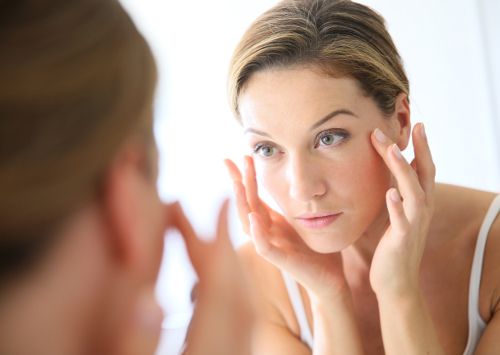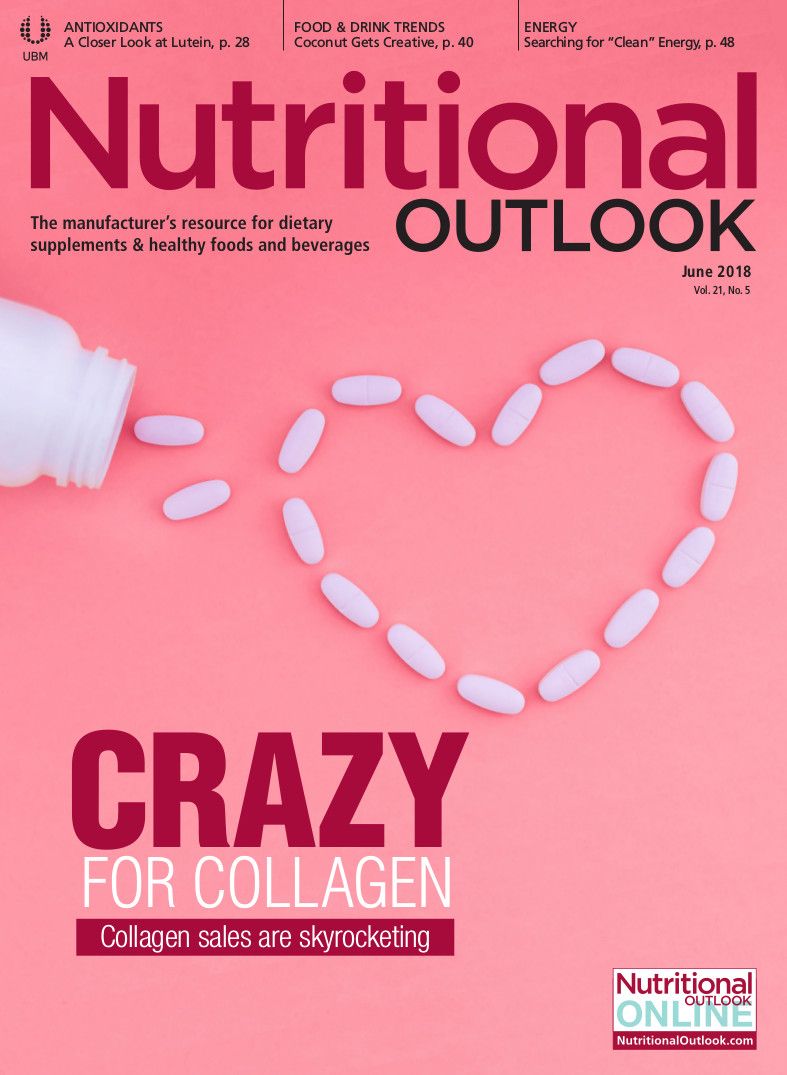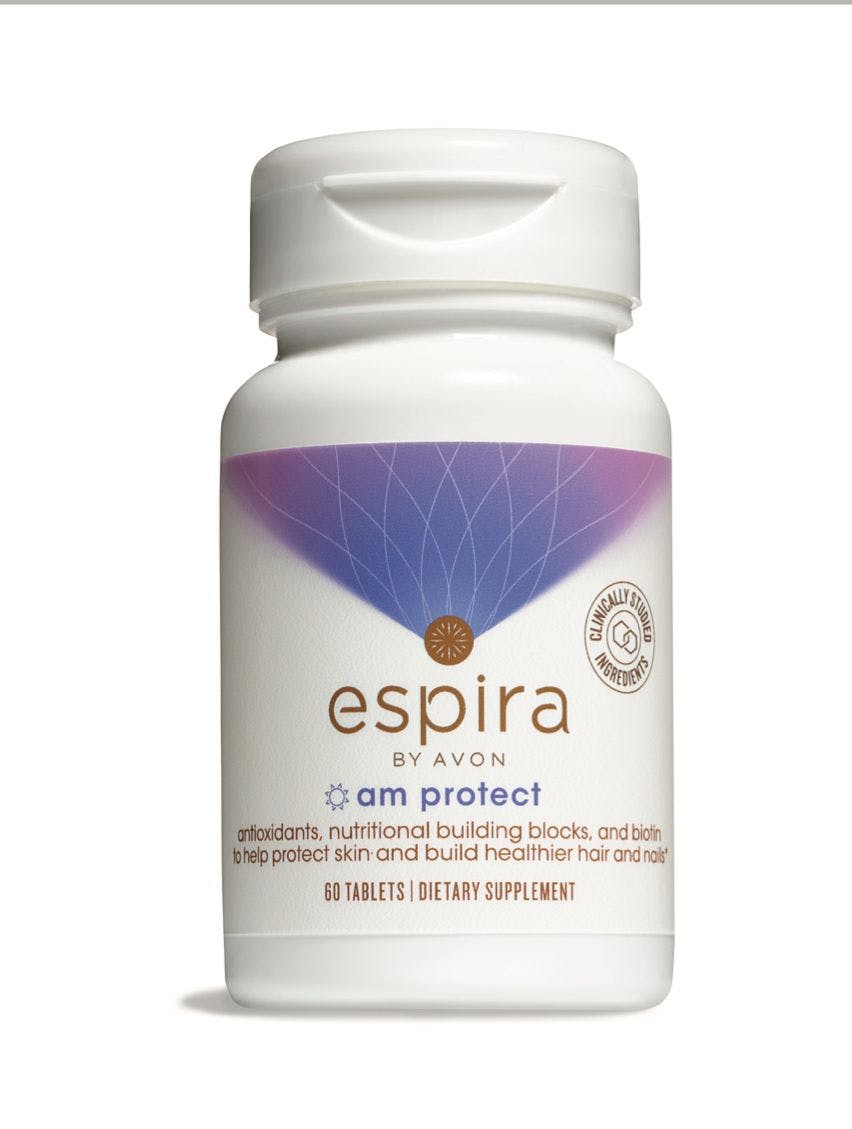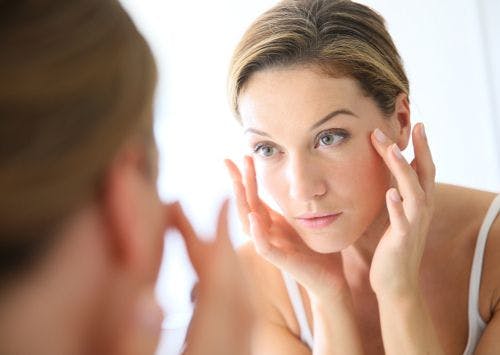Are Nutricosmetic Supplements Ever Allowed to Make Sun Protection Health Claims?
In May, FDA sent warning letters to nutricosmetic supplements making sun protection health claims. What, if any, sun protection claims can nutricosmetic products make?
Photo © Shutterstock.com/goodluz

In May, FDA turned its enforcement eye to nutricosmetic dietary supplements that make “sun protection” claims. FDA Commissioner Scott Gottlieb, MD, announced on May 18 that FDA sent warning letters to four makers of ingestible supplements the agency said made claims beyond what’s legal for dietary supplements-claims that would cause the products to be considered drugs.These beauty-from-within supplements boasted effects ranging from the ability to “protect you from both UVA and UVB rays” to the ability to “[treat] skin disorders such as psoriasis, eczema, polymorphic light eruption, and sunburn.”
FDA permits sun protection claims for topical sunscreen products, which the agency regulates as over-the-counter drugs. FDA maintains a prescribed list of approved topical sunscreen ingredients the agency deems safe and effective based on scientific evidence.
While FDA regulates topical sunscreens as OTC drugs, the agency regulates nutricosmetics as dietary supplements. (The agency does not recognize “nutricosmetics” as an official product category unto itself.) To be a legal dietary supplement, then, nutricosmetics must restrict themselves to the ingredients and health claims permitted for supplements. These ingestible beauty products can still make structure-function claims of, for instance, maintaining skin moisture or suppleness-provided, of course, firms have the proper evidence to substantiate those claims. Once a company starts making “prevention” claims, such as those related to “photoprotection,” “protecting” skin from “sun damage,” or providing a “defense” against UV rays linked to skin cancer, however-all claims used by the companies FDA sent warning letters to-a firm begins to stray into illegal drug territory. “Skin-health claims on ingestible products that are consistent with the rules that apply to dietary supplements are still allowed,” says Kristi Wolff, a partner in the advertising and food and drug law practice at law firm Kelley Drye & Warren LLP (Washington, DC). But in regard to the firms FDA sent warning letters to, “These letters signal that where a product’s claims cross over into prevention of a disease or condition, FDA considers these products to be drugs and they would be required to comply with applicable drug rules.”
“FDA’s position on the claims at issue is not surprising,” says Wolff continues. “Sunscreens are regulated as OTC drugs because the intended use is to prevent sunburn and skin damage. Based on the claims, the intended use of the products discussed in the warning letters was also to prevent sunburn and skin damage, but the ingredients at issue were not recognized as safe and effective for sun protection purposes. Thus, it is FDA’s position that these products were being marketed as unapproved new drugs.”
Should supplement makers assume that no nutricosmetic products will ever be able to make sun protection claims, based on FDA’s stance on these particular products? That’s not quite the way to think about the issue, Wolff says. “These letters do not signal that FDA would never be open to an ingestible product, provided that it had the appropriate evidentiary support; rather, they signal that these products and ingredients are not recognized to have that support,” she says.
Not only that, says Megan Olsen, assistant general counsel for the Council for Responsible Nutrition (CRN; Washington, DC), “FDA guidance cautions about drawing bright-line rules between permissible and impermissible dietary supplement claims.”
A more prudent approach would be to look within. If you’re a supplement maker engaged in or interested in the nutricosmetic space, the best practice when deciding which claims to make would be to follow directions as usual: review the soundness of the evidence substantiating your claims, and keep in mind that “FDA will look at the intended use of the product based on the marketing claims to determine what category the product falls into-e.g., cosmetic, dietary supplement, or drug,” says Wolff.
If your product is intended to be a dietary supplement, claims of diagnosing, curing, mitigating, treating, or preventing a disease are firmly off the table. Nutricosmetic firms can use FDA’s warning letters as a caution to, if warranted, go back and take a hard look at their own products and claims. Just don’t rely on FDA’s actions against other companies to determine whether or not your company is in the clear. “Determining the level of scientific evidence necessary to support a claim is fact specific, and companies should not simply rely on blanket rules regarding whether a certain type of evidence can support a claim,” says Olsen.
Also read:
FDA Warns Nutricosmetic Brands Making “Sun Protecting” Health Claims

HHS announces restructuring plans to consolidate divisions and downsize workforce
Published: March 27th 2025 | Updated: March 27th 2025According to the announcement, the restructuring will save taxpayers $1.8 billion per year by reducing the workforce by 10,000 full-time employees and consolidating the department’s 28 divisions into 15 new divisions.

.png&w=3840&q=75)

.png&w=3840&q=75)



.png&w=3840&q=75)



.png&w=3840&q=75)
















